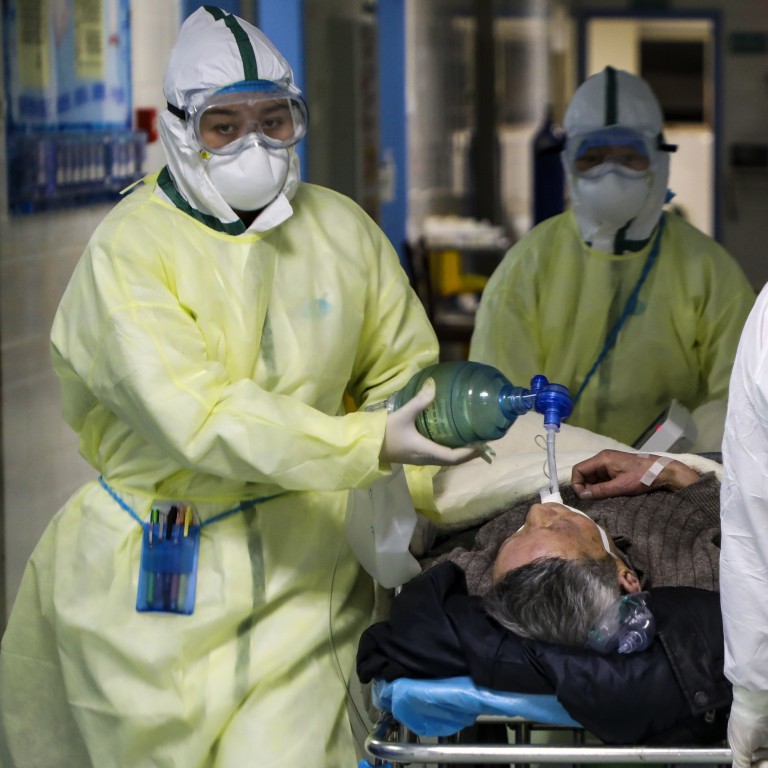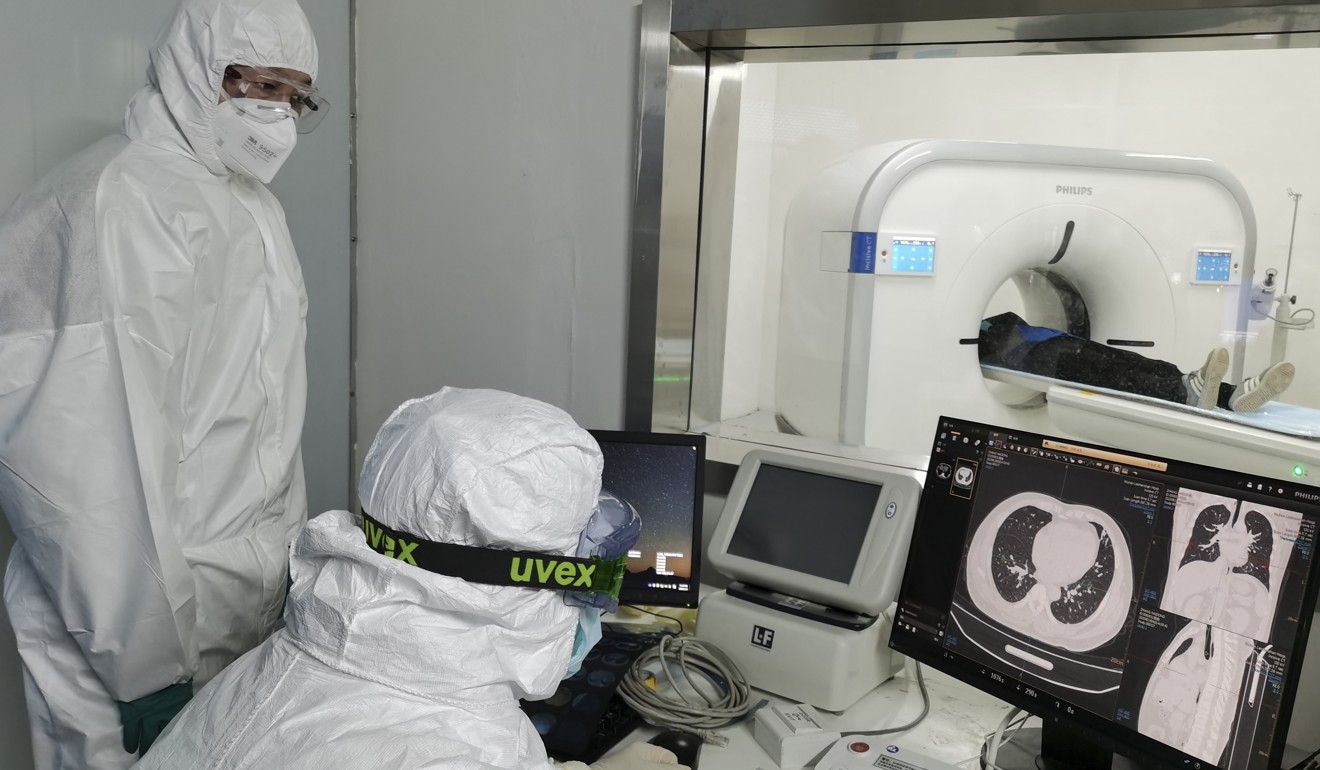
Coronavirus: Wuhan doctors battle outbreak in nappies as masks rub their faces raw
- ‘When doctors and nurses are in the ward, they cannot eat, drink or go to the bathroom,’ Wuhan media briefing is told
- Doctors and nurses ‘have bloody marks on the bridges of their noses’ from mask-related skin irritation, says Ma Xin, a doctor brought in to battle the outbreak
Medical workers battling a coronavirus outbreak in the central Chinese city of Wuhan wear nappies to get through gruelling shifts and must cope with skin irritations from protective masks, according to a doctor on the front line.
“When doctors and nurses are in the ward,” dressed in protective clothing that seals them off from the environment, “they cannot eat, drink or go to the bathroom”, Han Ding, deputy director of Peking Union Medical College Hospital in Beijing, said in Wuhan, the epicentre of the outbreak.
“Just in case they must urinate, they [wear a] diaper, and wash up after they’re done with their shift.”
Han is one of hundreds of doctors brought in from beyond Wuhan to support the round-the-clock fight against the coronavirus. So far, the disease has killed 1,115 people worldwide, with all but two of the deaths in mainland China. The virus causes an illness known as Covid-19 and had infected more than 45,000 globally as of Tuesday.
Leaders of medical teams described the difficult working conditions during an daily update held by the government of Hubei, where Wuhan is located.
“Wearing the protective suits is extremely uncomfortable,” said Ma Xin, deputy dean of Huashan Hospital in Shanghai. “Sometimes I want to itch, but we absolutely cannot do that, so we just have to bear it.
“Our doctors and nurses all have signs of irritation and even bloody marks on the bridges of their noses. These are the conditions of their work.”
Wuhan doctors beaten up, overworked, under supplied
Han said medical staff were working around the clock to care for those in the worst condition. Nurses were doing shifts of up to six hours in intensive care units, while doctors were working between six and eight hours, though shifts could go even longer, he said.

“Doctors and nurses are wearing their equipment so long you can see the marks on their faces,” said Zhou Jun, party secretary of the China-Japan Friendship Hospital in Beijing.
Zhou, who has been deployed to Tongji hospital in Wuhan, said medical staff were doing all they could to save lives, given limited supplies.
Advanced equipment brought in from around the nation was playing a critical role in the struggle with the virus, Ma said.
“In the absence of specific medicines [for the virus], ventilators and ECMO are of great importance in the treatment,” he said, referring to machines that circulate a patient’s blood through an artificial lung.
Respirators, artificial lung machines and other equipment also play a vital role in keeping the death rate from climbing higher.
Zhou said his team brought with them 15 million yuan (US$2.15 million) of cutting-edge equipment from Beijing, including not only ECMO machines but ventilators, monitors, bronchoscopes and other devices.
“Some of this equipment is very expensive, but plays a critical role in curing patients,” Zhou said. “The most important thing is to reduce the death rate, and increase the rate of those cured.”
The World Health Organisation, seeking to distinguish the virus from the disease it causes, said on Tuesday that it had named the virus SARS-CoV-2, and the disease Covid-19.
Purchase the China AI Report 2020 brought to you by SCMP Research and enjoy a 20% discount (original price US$400). This 60-page all new intelligence report gives you first-hand insights and analysis into the latest industry developments and intelligence about China AI. Get exclusive access to our webinars for continuous learning, and interact with China AI executives in live Q&A. Offer valid until 31 March 2020.

